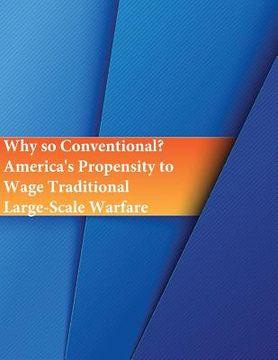Why so Conventional? America's Propensity to Wage Traditional Large-Scale Warfare (en Inglés)
Reseña del libro "Why so Conventional? America's Propensity to Wage Traditional Large-Scale Warfare (en Inglés)"
The United States has repeatedly engaged in irregular warfare-including counterinsurgency, foreign internal defense, and unconventional warfare-throughout its history. However, despite its familiarity with irregular warfare, there is reluctance on the part of U.S. presidents, military leaders, and even the general public to engage in this form of war.This work asks why the U.S. security mindset is focused on traditional large-scale warfare, even when the threats the United States has faced, and will continue to face, are mostly irregular. To answer this question, this work uses Arreguín-Toft's strategic interaction model-which looks at why same-approach and opposite-approach strategies (direct and indirect) favor strong and weak actors differently-to analyze the U.S. Revolutionary War, when the United States was the weak actor, and the Vietnam conflict, when the United States was the strong actor, and to assess whether the United States implemented the correct forms of strategic interaction in each conflict.This study finds that the United States' propensity for traditional large-scale warfare is based upon its desire to achieve victory in the shortest amount of time. Furthermore, a preponderance of resources and instruments of war has also impelled the United States to employ overwhelming mass, maneuver, and firepower, instead of irregular warfare with a protracted timeline strategy.

